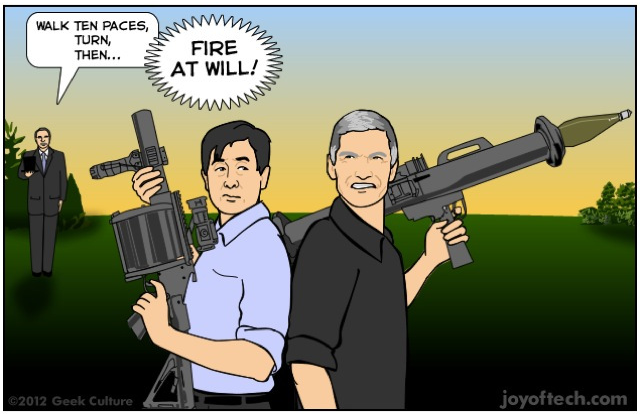A limited import ban by the ITC on some Apple devices is under scrutiny and Apple believes the order could have far-reaching consequences, according to papers filed with reviewers. At issue is whether the courtroom win by Samsung may prompt other governments to limit imports of American made electronics and other goods.
In papers filed with the United States Trade Representative (USTR) – which can overturn ITC decisions – Apple argues that the limited ban on iPhone 4 and iPad 2 imports hinges on a Samsung patent the Korean company had declared standard essential…
Patent observer Floran Müeller at FOSS Patents obtained filings of Apple and Samsung before the USTR.
In them, Apple tells the U.S. President’s representative that the “decision makes the ITC an outlier internationally and internationally.”
According to Mueller, the patent in question involves 3G telecommunications, an invention Samsung had declared was a standard essential patent (SEP), thus falling under the fair, reasonable and non-discriminatory licensing, or FAIR.
Up until the ITC decision in early June, courts had denied injunctions in SEP cases.
Naturally, Samsung wants the ban to go into effect and urged the USTR to wait for “more appropriate opportunities” to debate abuse of SEP cases before the ITC – such as how Ericcson and InterDigital are suing the Korean smartphone maker.
However, Apple is having nothing of that waiting game.
The company told the USTR the ITC’s decision “is a case with much broader ramifications.” The ITC ruling only focused on the “immediate, short-term effects” of excluding the iPhone 4 and iPad 2 while “wholly fail[ing] to engage with the policy dimensions of its decision.”
Those wider ramification Apple alluded to include “the long-term, dynamic harm to competition and innovation in the United States that would come from subverting the standard-setting process and facilitating patent hold-up,” according to the company’s filing.
The firm also describes the potential international impact to U.S. exports should a ban based on a SEP be upheld:
That could well cause other jurisdictions to reverse course and begin excluding American goods — including computers, mobile devices, and other consumer electronics — from their markets based on FRAND-committed patents. The United States would be unable to protest, given the actions of its own ITC.
The ITC ban does not go into effect for 60 days, allowing for a Presidential review.
Usually such review periods end without comment, when the ban would be enforced. After that time, Apple could go to the U.S. Federal Circuit Court of Appeals.

